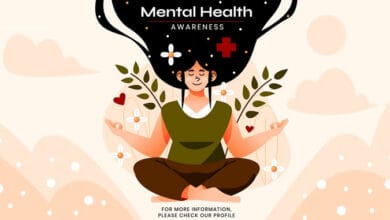
Medical cannabis can serve a valuable harm reduction role for veterans with pain, PTSD, and insomnia. It can also act as a substitute for prescription drugs.
Currently, the VA must follow federal law, which prevents it from recommending marijuana or helping veterans fill out state-required paperwork for medical cannabis. However, there is bipartisan legislation that would change this.
Chronic Pain
As more healthcare veterans become comfortable with recommending marijuana, it is increasingly being used to treat chronic pain. Unlike pharmaceutical opioids, cannabis doesn’t directly attach to opioid receptors in the brain but acts as a signal blocker and modulator.
The pain relief from marijuana is often immediate and can be long-lasting. Moreover, it is less habit-forming than opioids and does not cause addiction. Those who experienced the greatest benefits from medicinal cannabis for chronic pain were experiencing neuropathic pain (the kind of nerve pain that causes tingling and burning sensations).
The best way to learn whether medical marijuana is right for you is to speak with a qualified physician. Many doctors have experience with medical cannabis and understand the qualifying conditions in each state where it is legal. If you’re wondering if you qualify for a medical cannabis prescription, you can schedule a consultation. Our evaluations come at no cost to you.
PTSD
Post-Traumatic Stress Disorder (PTSD) can be debilitating and often results in a wide range of symptoms such as nightmares, anxiety, hypervigilance, difficulty sleeping, rage, memory problems, and detachment from family and friends. It is a complex and chronic condition with no quick fixes.
However, recent studies have shown that cannabis can help to reduce PTSD symptoms and that it can be a safe option for veterans with this condition. Medicinal cannabis can be administered as dried buds for smoking, oil for sublingual ingestion, or as a mouth spray for a faster onset. It can treat various conditions, including chronic pain in adults, nausea and vomiting associated with chemotherapy for cancer, and PTSD. It is recommended that a veteran discuss their use of medicinal cannabis with their GP.
Insomnia
Difficulty falling or staying asleep, known as insomnia, is a prevalent sleep disorder triggered by anxiety, long-term pain, depression, and nightmares or night terrors. If initial treatments fail to provide relief, some individuals opt for medicinal cannabis to improve their sleep quality.
The latest research on the effect of cannabis on insomnia has found that THC and CBD may be beneficial in promoting sleep. The main psychoactive element in marijuana is THC, which can have sedative effects that aid in falling asleep faster and enhancing sleep quality. Additionally, CBD is known to reduce anxiety and promote relaxation, which can lead to better sleep.
One of the most recent studies looked at an experimental THC: CBN: CBD medicinal cannabis formulation (ZTL-101) and investigated its effect on sleep using the Insomnia Severity Index as a primary outcome measure in 24 participants over two weeks. The study found that cannabis oil was more effective than a placebo at improving insomnia symptoms, with improvements reflected in subjective measures of sleep quality and feeling refreshed on awakening.
Chemotherapy-Induced Nausea
Individuals undergoing chemotherapy for cancer often experience nausea and vomiting as common side effects, despite modern antiemetic medical treatments that can significantly reduce these unpleasant symptoms. About half of all people who undergo potent chemotherapy still experience these side effects.
Dronabinol, a synthetic derivative of the cannabis plant’s active ingredient delta-9- tetrahydrocannabinol (THC), and the neurokinin-1 (NK-1) inhibitor nabilone are both FDA-approved medications for the treatment of chemotherapy-induced nausea and vomiting in adults. However, their unpleasant adverse effects limit their use.
In a 2020 study published in Annals of Oncology, oral THC: CBD extracts were more effective than placebo in decreasing nausea and vomiting induced by cancer chemotherapy.



